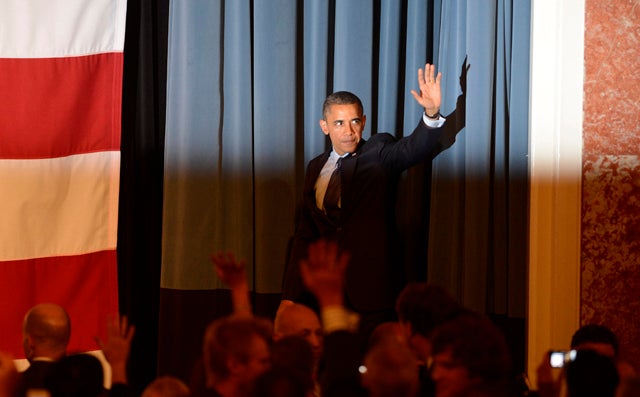President Obama invoked executive privilege to prevent further congressional oversight of the Justice Department’s Fast and Furious operation on the same day it bemoaned the supposed lack of transparency among some conservative non-profits.
Jim Messina, Obama’s 2012 campaign manager, touted efforts on the campaign’s website to get Crossroads GPS, a conservative super PAC, to disclose its donors. But while Messina was hyping political transparency, Obama himself was ensuring the opacity of one of his Justice Department’s most controversial programs.
On Wednesday morning, the president opted to stonewall the House Oversight and Government Reform Committee’s efforts to obtain documents related to Operation Fast and Furious, which facilitated the transportation of thousands of firearms across the southern border, where they were handed off to Mexican drug cartels with the foreknowledge of some top DOJ officials.
Members of the committee were livid. “It’s a complete shock,” said Chairman Darrell Issa (R-CA). “How come executive privilege could be instituted at this point when it’s never been raised in the last 18 months and it wasn’t raised last night?”
The 11th hour move “implies that White House officials were either involved in the ‘Fast and Furious’ operation or the cover-up that followed,” said Brendan Buck, a spokesman for Speaker John Boehner (R-OH). “The Administration has always insisted that wasn’t the case. Were they lying, or are they now bending the law to hide the truth?”
Heritage’s Todd Gaziano noted Wednesday that “executive privilege cannot be invoked at all if the purpose is to shield wrongdoing,” according to the Supreme Court’s ruling in United States v. Nixon.
“There is reason to suspect that this might be the case in the Fast and Furious cover-up and stonewalling effort,” Gaziano adds. “Congress needs to get to the bottom of that question to prevent an illegal invocation of executive privilege and further abuses of power.”
Obama himself accused the Bush administration of “trying to hide behind executive privilege every time there’s something shaky that’s taking place” during an interview in 2007.”
“The mere fact that you have the legal power to keep something secret does not mean you should use it,” Obama later stated a day after assuming the presidency.
But use it he did. While the use of executive privilege is not new, the optics of doing so while, on the same day, calling for political transparency does not lend an air of sincerity to either effort.
Indeed, much as Obama has seemingly reversed his position on executive privilege, Messina’s call for the disclosure of super PAC donors conspicuously excluded the names of any such groups that favor the president’s reelection. The president has allowed at least four of his cabinet secretaries to attend super PAC fundraisers, even after labeling such groups a “threat to democracy.”




























